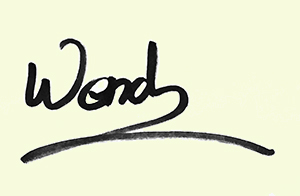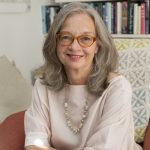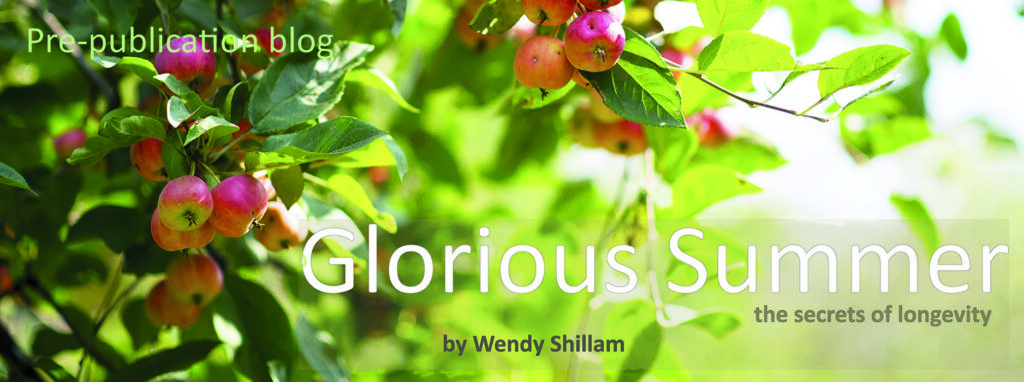Longevity is a scientific issue, but ageing is a social, financial, political and a feminist issue. Like many things that happen to women more than men, growing old is often side-lined. The disaster in our care homes during 2020 was a disaster that occurred more often to women than to men. And it has been predominantly female carers, daughters, mothers and sisters that have had to pick up the pieces. In 2021 that needs to start changing. Building back better means re-constructing everything we think we know about getting old.
That’s the last time I’m going to talk about ageing or getting old. For me, 2021 will be the year that I complete my opus major on longevity. It is to be called Glorious Summer, not the metaphor that many people think of when they think about growing old. My writing stance is to refuse to think about getting older as a negative. We should celebrate longevity.
In my research I have discovered that the secrets of longevity, if secrets they be, are to be found in plain sight, within scientific texts and evidenced by research. Today there is no doubt, decline isn’t inevitable or genetically pre-programmed. That simply isn’t true. I intend to disentangle many of the myths about maturing that fuel prejudice and can contribute to some people’s unnecessary decline. The book will offer a positive and pragmatic approach to the coming years, that can change the outlook of anyone from 25 to 125.
This is to be no vapid polemic. My writing is crammed with facts and evidence. I’ve discovered in the course of my research that we are all subject to some very nasty myths about longevity. Ageism is rife in families, in politics, in the job market and in medicine. Older people are subjected to all the prejudices that women, the mentally ill, LGBTQ+, or BAME people suffer, and like them, we can tend to limit ourselves by heeding those prejudices. For far too long people with even a strand of grey hair have been lampooned, belittled or simply ignored. And we’ve accepted much of it.
Yet given what we now know about life, how to achieve a more satisfying and healthy long life is knowledge that should be freely available. Science has many of the answers, but politicians and pundits are not listening. Fact: People are not genetically engineered to die at a certain age. Fact: We don’t wear out like old bangers do. At any age humans possess the potential to improve their health, to heal and prolong active life.
I believe that we should value the sagacity of experience at least as much as we value the vigour of youth. Why should we settle for autumn metaphors when we are still so vital, when we still have so much to give?
The secret of longevity is to maintain the body, as best we can, while expanding our minds. This book will explain how to go about it, while encouraging the reader to keep a positive attitude. I believe that we should view the achievement of maturity as if we had discovered a sunny upland. We should seek out that place where we may enjoy every second of life’s long and glorious summer.
This year I shall be maintaining a weekly blog, covering pre-publication excerpts from the book as well as a series of articles about the science and the scientists who have unlocked the secrets of longevity. Please register your interest by clicking on the mailing list below.
A beta reader is a test reader of an unreleased work (similar to beta testing in software), who gives feedback to the author, from the perspective of an average reader. If you’d like to help me get this book as good as it can be, I’d love to hear from you. The chapters will be ready from June onwards. I’m sorry there is no fee for this work, except a free copy of the finished book and an acknowledgement. This is not a commercial exercise. Say Tomato, the publisher of the book and of the website is run as a self-financed social enterprise. I shall be eternally grateful. Any profits from Glorious Summer will be directed into Say Tomato work for women over 40.
Contact me directly wendy@wendyshillam.co.uk if you are interested, giving a brief description of yourself and your reading experience. (It doesn’t matter if you haven’t done any beta reading before – avid readers make the best beta readers.) Thank you.


Wendy Shillam
